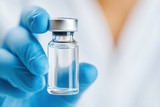At DripDoc, we’re committed to helping individuals understand their options when it comes to wellness care. While many people prefer non-injection therapies, injectable peptides continue to play an important role in personalized health support. These treatments are typically prescribed to support energy, metabolic health, recovery, hormonal balance, and more.
We do not sell or dispense medications ourselves, but we help connect clients with licensed healthcare providers who can determine whether a therapy may be appropriate based on individual needs, goals, and medical history. All therapies listed here require a prescription and medical oversight.
What Are Injectable Peptides?
Peptides are short chains of amino acids that act as signaling molecules in the body. Certain therapeutic peptides are used in functional and integrative medicine to support specific outcomes, such as weight loss, energy, or recovery. Because many peptides are not stable when taken orally, injection is often the most reliable way to deliver them.
These compounds are administered subcutaneously (under the skin), typically in the abdomen or thigh, using a very small needle. When used correctly under medical supervision, they can provide targeted support based on your wellness plan.
Injectable Peptide Options (Available by Prescription)
AOD-9604 (Anti-Obesity Drug)
-
Use Case: Weight loss and fat metabolism
-
How It Works: A modified fragment of human growth hormone, AOD-9604 may support fat breakdown without affecting blood sugar or muscle mass.
-
Format: Pre-filled syringe or injectable vial
CJC-1295 / Ipamorelin
-
Use Case: Growth hormone stimulation, recovery, and improved sleep
-
How It Works: Combines a growth hormone-releasing hormone (CJC-1295) with a growth hormone secretagogue (Ipamorelin) for synergistic support.
-
Format: Injectable blend
Tesamorelin
-
Use Case: Fat reduction, especially visceral fat
-
How It Works: A synthetic analog of GHRH, Tesamorelin is FDA-approved for lipodystrophy and may support metabolic health.
-
Format: Injectable vial
MOTS-C
-
Use Case: Cellular metabolism, energy, and insulin sensitivity
-
How It Works: A mitochondrial-derived peptide thought to support glucose metabolism, exercise performance, and metabolic function
-
Format: Injectable vial
PT-141 (Bremelanotide)
-
Use Case: Libido and sexual wellness support
-
How It Works: Stimulates melanocortin receptors in the brain involved in sexual arousal
-
Format: Injectable or nasal spray (see non-injection post)
Epithalon (Epitalon)
-
Use Case: Anti-aging, telomere support, and sleep regulation
-
How It Works: A synthetic peptide that may influence pineal gland function and cellular regeneration
-
Format: Injectable vial
GHK-Cu (Injectable)
-
Use Case: Skin and tissue repair, collagen production
-
How It Works: A copper peptide complex that supports wound healing and tissue remodeling
-
Format: Injectable vial or topical (see non-injection post)
Why Patients Consider Injectable Therapies
Injectable peptides may be considered when:
-
Non-injection alternatives are unavailable or less effective
-
A targeted and bioavailable delivery method is preferred
-
A licensed provider determines injections are the most appropriate route
These therapies are not suitable for everyone. They are not sold over-the-counter and should never be used without a valid prescription and professional medical oversight.
How to Learn More
DripDoc offers educational guidance and connects clients with telehealth providers who can evaluate whether a peptide therapy may be right for them. We provide:
-
Clear information on therapy types and use cases
-
Help preparing for a provider appointment
-
Step-by-step guidance on prescription access and follow-up
To learn more, call us at 833-DRIPDOC. We’ll walk you through what to expect, how to get started, and help you make informed decisions about your care.

